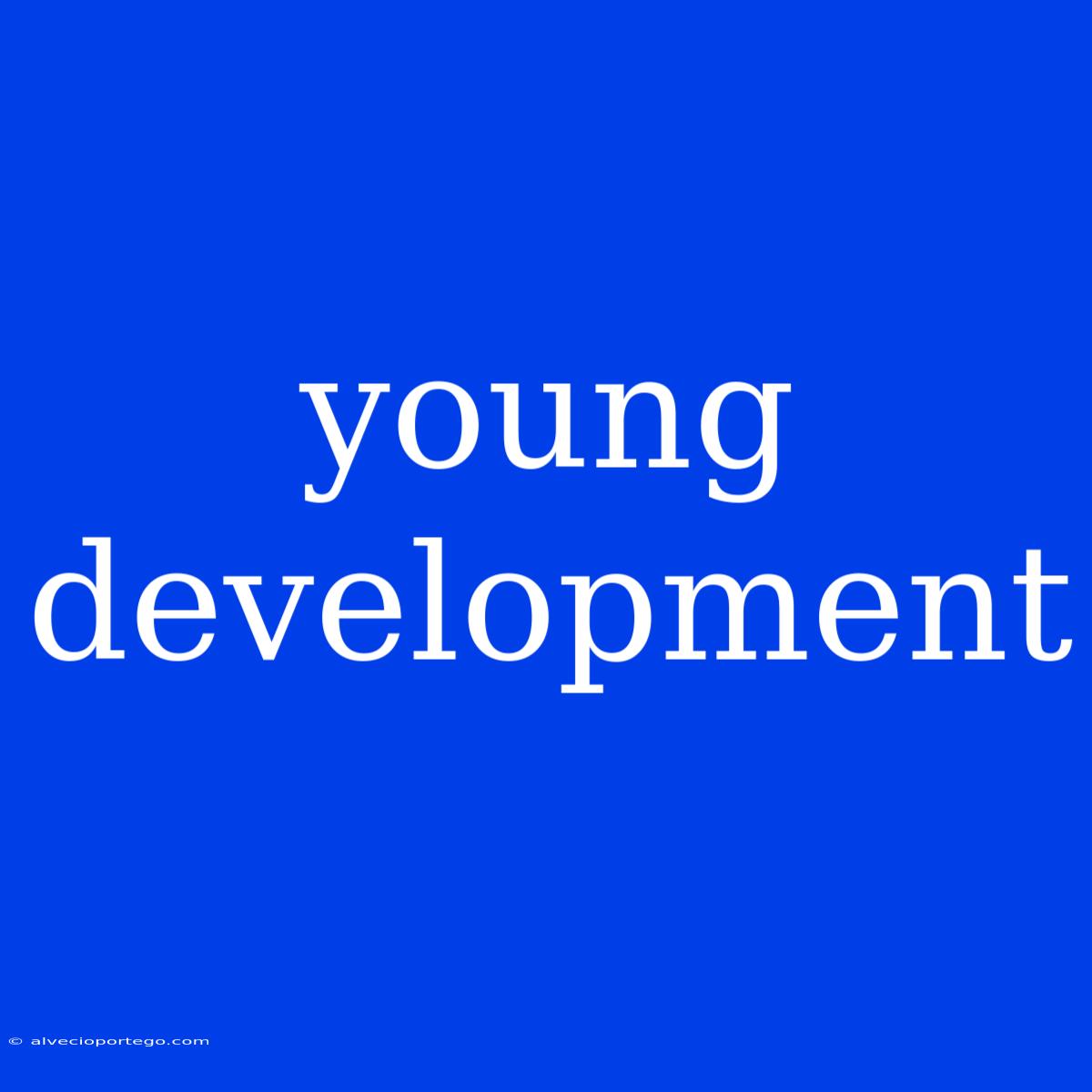Young Development: A Vital Stage for Growth and Change
Young development refers to the period of rapid physical, cognitive, social, and emotional growth that occurs during childhood and adolescence. It's a crucial time for laying the foundation for future health, well-being, and success.
Stages of Young Development
Young development can be divided into several stages:
1. Early Childhood (Birth to 5 years): This stage is marked by significant physical growth, language development, and the development of fundamental motor skills. Children learn to walk, talk, and interact with others.
2. Middle Childhood (5 to 11 years): This period focuses on cognitive development, with children developing logical thinking, problem-solving skills, and social skills. They learn to read, write, and understand complex concepts.
3. Adolescence (11 to 18 years): This stage is characterized by rapid physical and emotional changes. Adolescents experience puberty, establish their identity, and explore their independence.
Factors Influencing Young Development
A variety of factors influence young development, including:
- Genetics: Genes play a role in determining physical traits, cognitive abilities, and temperament.
- Environment: Family, school, community, and cultural influences all contribute to a child's development.
- Nutrition: Adequate nutrition is crucial for physical growth and brain development.
- Healthcare: Access to healthcare services and preventive measures can ensure healthy growth and development.
- Education: Early childhood education and quality schooling provide children with the knowledge and skills necessary for future success.
- Social Interactions: Positive social interactions with family, friends, and peers contribute to emotional and social development.
Supporting Young Development
Parents, educators, and communities play a vital role in supporting young development. Some strategies include:
- Providing a stimulating and enriching environment: Offer opportunities for exploration, learning, and creativity.
- Nurturing positive relationships: Develop strong bonds with children and foster positive peer relationships.
- Encouraging healthy habits: Promote healthy eating, exercise, and sleep habits.
- Providing access to quality education: Enroll children in age-appropriate learning programs.
- Promoting emotional well-being: Help children develop coping skills, emotional regulation, and self-awareness.
Conclusion
Young development is a dynamic process that shapes individuals into the people they become. By understanding the various stages and factors influencing development, we can create supportive environments that foster healthy growth, well-being, and future success for all young people.

